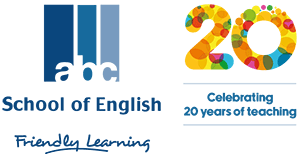How The Internet Can Enhance The Language Learning Experience

By Rachel Rowland ( ABC School’s Academic Coordinator )
Nowadays, internet use is widespread and the majority of people around the world have access to the World Wide Web. Most people have at least one social media account, which they often use to connect with family and friends, upload information about their lives and read gossip about their favourite celebrities. Although the Internet has become available to most people, only recently have educators realised the potential that the Internet can have for enhancing the learning of a foreign language. In addition to the communication benefits of the Internet, the Internet can be used to retrieve and access information. The World Wide Web is therefore a virtual library at your fingertips and is a readily available world of information for English language learners. In this article, I will discuss some of the ways in which you can use the internet to support and shape your language learning experience.
Dictionaries
Online dictionaries can be of great value to EFL students. Most people these days, carry a smartphone around with them. These mobile phones are a very handy resource for students of English. You can easily look up the meaning of new vocabulary items, even if you are on the bus, train or walking along the street. Not only does an online dictionary provide the definition of words and phrases, along with the parts of speech, they can also provide audio pronunciations of words and phrases. In my opinion, one of the best online dictionaries is https://dictionary.cambridge.o.... This dictionary is very comprehensive, providing many examples of the usage of words, the pronunciation of the words and common collocations for these words. In addition, the online thesaurus provides synonyms and related words. The beauty of online dictionaries, is that nobody can see that you are looking up a new word or phrase, which makes learning more discreet and potentially less embarrassing for shy students.
Podcasts
Podcasts are an amazing resource for learning a foreign language, but what exactly is a podcast? A podcast refers to audio or video files that can be accessed via the internet. There are many podcasts available online, which have been created or adapted for the purpose of learning English. They can be accessed or downloaded via various websites. One such website is the BBC World Service, which has regular podcasts, created for English language learners. Their podcast series entitled ‘The English We Speak’ focuses on everyday phrases and slang which is used by regular people throughout the United Kingdom. The podcasts are published weekly, and each one has a bite-sized duration of 3-4 minutes and the English spoken is at a slightly slower speed than usual. The ‘must have’ phrases introduced on the podcasts can enhance your everyday conversations and each mini lesson provides students with various examples of how the new expressions can be used, along with transcripts of each recording, so that students can read and listen at the same time. The great thing about the podcasts is that they are short enough to listen to on your commute to work or school! You should then practise using the new expressions in real-life conversations with your English-speaking friends.

Reading
There is nothing better than the internet to provide English language students with a wide range of opportunities to test and challenge their reading skills. Students can improve their reading skills through computer software programmes and other online resources. However, it is important to choose the type of reading texts which interest you. If you are interested in sport, choose websites that contain articles about sport. Try to find websites which offer vocabulary building exercises and reading comprehension exercises too. One of my favourite websites to help students improve their reading skills is Breaking News English. This website offers full lessons, based around real news articles which have been adapted for English language students and the stories are based on current events. Each lesson offers various vocabulary building exercises to accompany the reading material, along with comprehension check questions. In addition, each text has an audio file so that you can read and listen along at the same time.
Pronunciation
There are many apps available to help students with the pronunciation of English words and phrases. Pronunciation is usually only ever corrected by your teacher, but how can you help yourself to understand and be understood in real-life situations? Published by Macmillan Publishers, Sounds: The Pronunciation App is probably the most popular pronunciation app available. The app features an interactive phonemic chart, a “How do you say…” option that allows you to not only listen to how a word is pronounced but also record and playback your own voice. I love this app and my students find it fun, interactive and educational. It is completely free to download onto your smartphone, so why not download it today!
The internet is truly an amazing resource for students of English. There are so many fun and interactive materials available, created for all English language levels, and for a wide range of learner styles. Whatever you wish to improve on, there is an online resource available for you!













